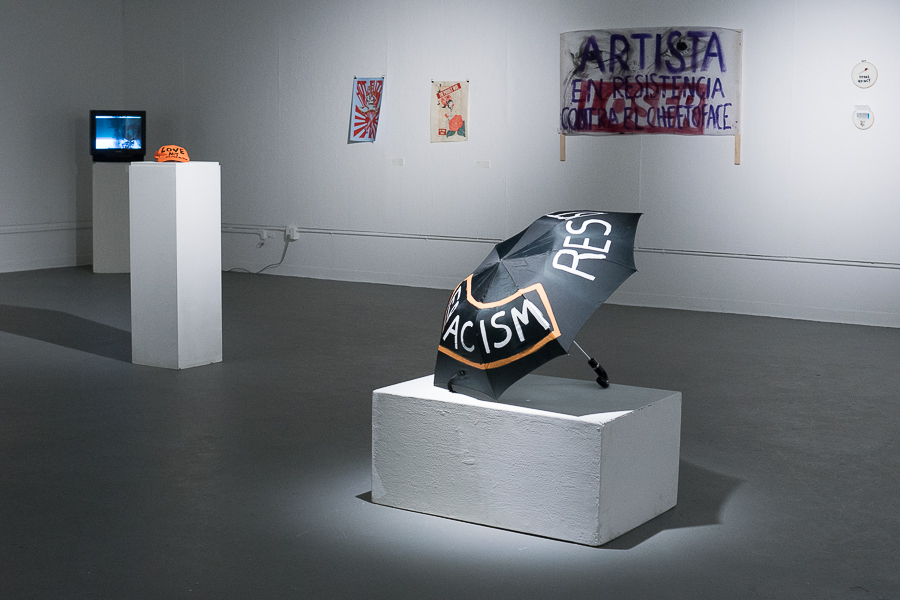
Art of protest used to enact social change
Protest in today’s political atmosphere is not only necessary, but also an outlet for artists to use art as a form of social change. From the Dakota Access Pipeline protests to the Women’s March, art has been used as a powerful tool in protest for marginalized voices to be heard and remembered.
The UC Davis Basement Gallery, a student-run gallery located in Room 60 of the Art Building, accepts submissions from members of both the university and the Davis community to showcase in the gallery’s exhibitions. Their latest exhibition was titled She Persisted: The Art of Protest to celebrate International Women’s Day. The theme was focused on the Women’s March that occurred on Jan. 21, 2017. Although the gallery is small, each piece of art spoke volumes, and consisted of various mixed media and subject matters.
Seeing the paraphernalia from the Women’s March in person and all the handmade posters was deeply moving — with each stroke of the artists’ paintbrush creating words and images that made a permanent mark in history. These artists were able to convey messages that transcended traditional, mainstream feminism and used their creativity to address issues that are in many ways ineffable. As an artist myself, I understand art not only as a powerful method of self-expression, but also as an aperture to escape suffering and an opportunity for healing.
While the Women’s March became a topic of controversy regarding inclusivity and intersectionality, it was still a significant step towards greater change. My favorite piece from the gallery was a two-part embroidery piece — one using a tampon stitched with red thread and embroidered lettering and another using an empty birth control packet attached to it. The utilization of traditional embroidery with a twist struck me as innovative and almost brave. The meticulous details and needlework alone were astounding, but the use of these very intimate and oftentimes shamed daily objects that I depend on was empowering, to say the least.
Seeing memorabilia from and inspired by the Women’s March this past January reminded me of how much we need voice, agency and autonomy to represent all women, whether it is through art, speech, education or political action.
Helena Zittel, director of PR and marketing at the Basement Gallery, understands how important it is for us to use our voices to make a political and social difference.
“I think that protest is an opportunity to fully understand that we don’t have to be passive and that we have voices and that we have means of making them be heard and making real change,” Zittel said.
Written by: Becky Lee — arts@theaggie.org



